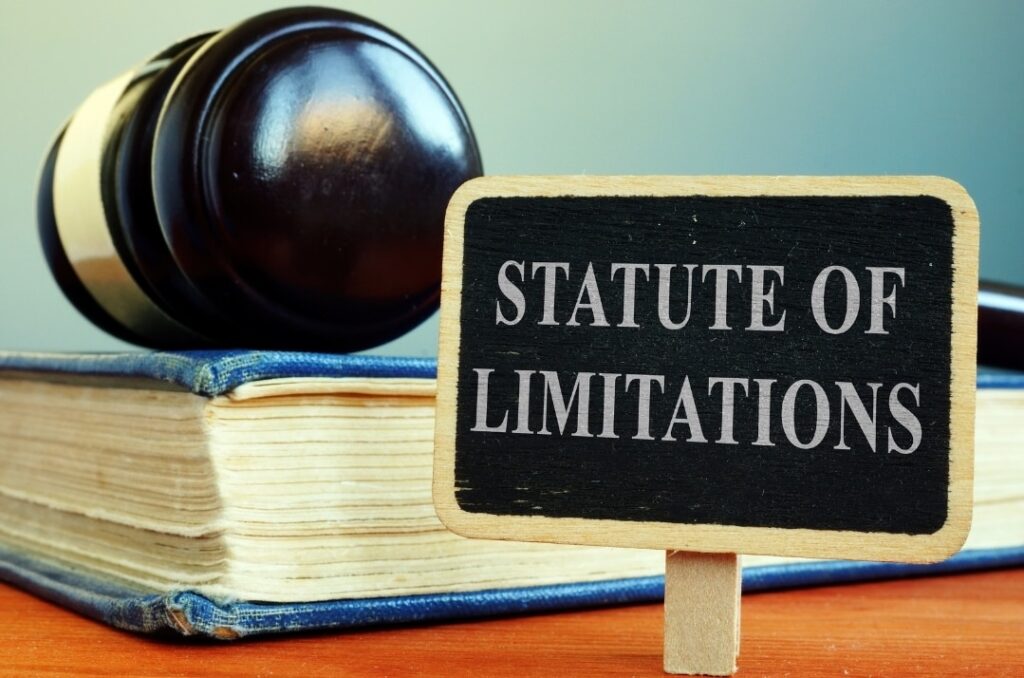Car Accident Statute of Limitations in Ohio
A car accident caused by another’s negligence can be frustrating and difficult. They may owe compensation for the damages you sustain. Medical bills to treat your injuries add up, you experience pain and suffering, and you may lose wages if you’re unable to work. Ohio law allows you to recover for these losses, but you don’t have an indefinite amount of time to pursue your claim. The statute of limitations restricts the window of opportunity to file a lawsuit, and you could lose your rights if you wait too long.

At Tittle & Perlmuter, our personal injury attorneys have an in-depth understanding of the implications of the Ohio statute of limitations. We won’t allow the strict rule to prevent you from obtaining the compensation you deserve, so we will file a lawsuit well before the deadline to protect your rights.
What is a Statute of Limitations?
Statute of limitations is the period of time within which you can pursue a claim or file a lawsuit for a particular action. The amount of time depends upon on the type of case. Personal injury matters are different from other types of civil cases, such as breach of contract, libel, slander, fraud, or trespassing.
What’s the Statute of Limitations in Ohio?
The Statute of Limitations in Ohio can be described in Ohio Revised Code Section 2305.10. For a personal injury case, the state measures the statute of limitations from the day that the cause of action accrued. With very few and rare exceptions, the injured victim has two years from the date of the accident in which to file a lawsuit in order to request compensation. It is important to note that in medical malpractice matters, however, the statute of limitations is only one year. This is why it is imperative to contact a personal injury lawyer as soon as you can after your injured due to someone else’s negligence.
Is It Possible to Pause a Statute of Limitations?
Making a claim with an insurance company will not toll (pause) the statute of limitations – you must file suit within two years. However, a crafty insurer may extend settlement negotiations or engage in other delay tactics so that you lose your right to sue when the statute of limitations expires. Plus, in some cases, injuries may take time to develop, so auto accident victims may end up treating with a doctor several months after the initial accident. This is why car accident victims have a two-year period to act.
There are other circumstances where the statute of limitations does not start on the date of the accident; instead, the clock begins to run at a later time. For instance, in medical malpractice actions, a victim may not know about his or her injuries at the time of treatment. If a sponge was left inside the body or other negligent conduct occurred, the statute of limitations would begin at the point where the misconduct was discovered or should have been discovered, whatever is earliest.
Why does Ohio have a Statute of Limitations?
In a personal injury case, the statute of limitations has multiple purposes:
- The statute is intended to prevent a victim from delaying a case to advance a certain strategy, to the detriment of the responsible party;
- The law protects the integrity of evidence that may deteriorate over time, such as physical evidence and witness recollections;
- Statutes of limitations encourage the timely resolution of disputes, so parties don’t drag cases on for several years.
Contact Experienced Ohio Personal Injury Attorneys
The Ohio statute of limitations can be a harsh rule if you don’t take action within the designated two-year period, and there are few ways to get around the law. If you’ve been injured in an accident that wasn’t your fault, it’s important to work with a knowledgeable attorney who will pursue your claim with the responsible party – or will take the matter to court if settlement negotiations break down. For more information on the statute of limitations for a car accident and other procedural laws that may impact your case, please contact Tittle & Perlmuter at 216-242-1361 or fill out our online contact form. Consultations are free, we are available to meet in Cleveland or our offices in Elyria or Lakewood.


